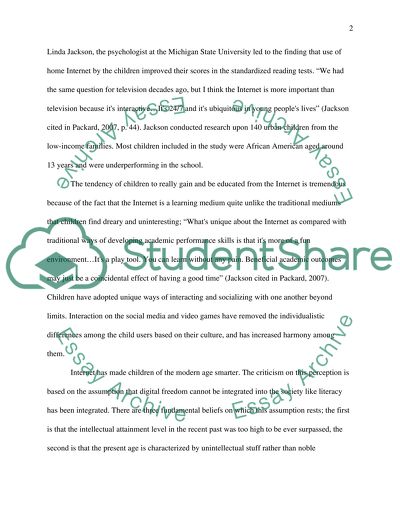Cite this document
(“Are Children Smarter Because of the Internet Research Paper”, n.d.)
Are Children Smarter Because of the Internet Research Paper. Retrieved from https://studentshare.org/sociology/1473347-are-children-smarter-because-of-the-internet
Are Children Smarter Because of the Internet Research Paper. Retrieved from https://studentshare.org/sociology/1473347-are-children-smarter-because-of-the-internet
(Are Children Smarter Because of the Internet Research Paper)
Are Children Smarter Because of the Internet Research Paper. https://studentshare.org/sociology/1473347-are-children-smarter-because-of-the-internet.
Are Children Smarter Because of the Internet Research Paper. https://studentshare.org/sociology/1473347-are-children-smarter-because-of-the-internet.
“Are Children Smarter Because of the Internet Research Paper”, n.d. https://studentshare.org/sociology/1473347-are-children-smarter-because-of-the-internet.


